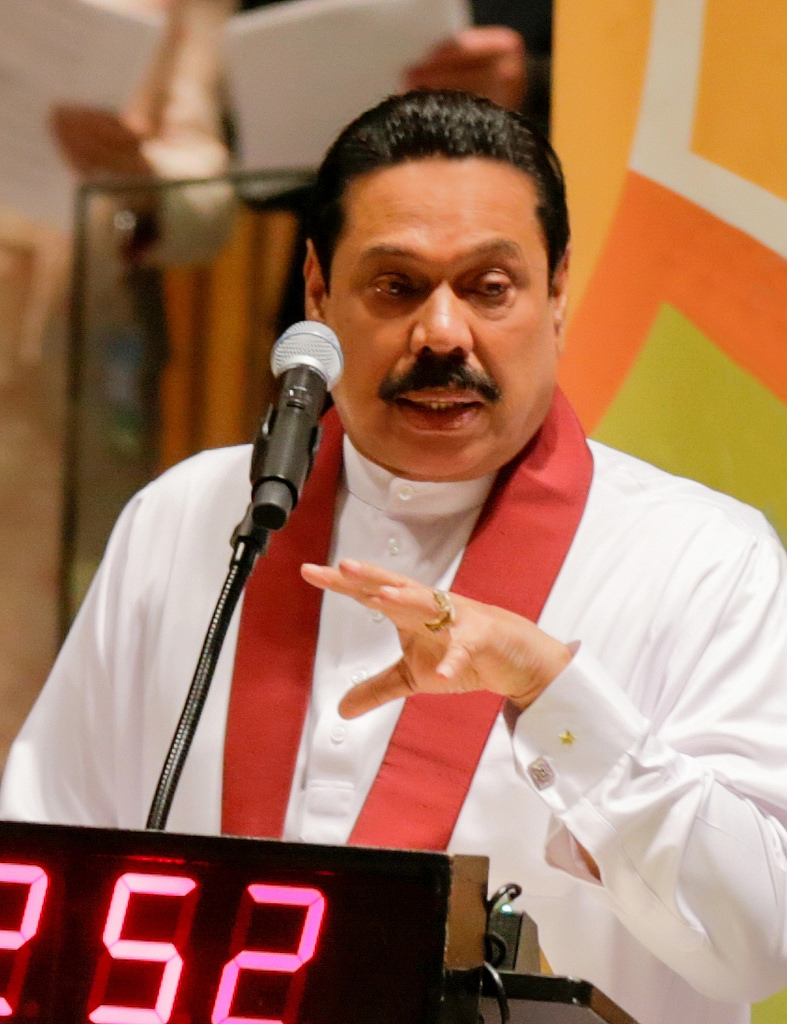
President Mahinda Rajapaksa has called on the international community to address the dangers posed by climate change collectively. Addressing over 100 other world leaders on Tuesday, 23rd September 2014, while participating in the United Nations Summit on Climate Change, in New York, the President highlighted that principles of equity and common but differentiated responsibilities and respective capabilities should guide the search for common solutions to issues related to climate change. Sri Lanka ratified the UN Framework Convention on Climate Change (UNFCCC) in 1993 and acceded to the Kyoto Protocol in 2002.
In his address, the President drew attention to the philosophy of Gautma Buddha, that have inspired successive leaders that the Earth and its vegetation did not belong to rulers, but that they were only temporary trustees who had to protect the environment for the benefit of future generations. In this regard, he noted that the Mahinda Chintana policy agenda of the Government, included a number of strategies to address climate change, ranging from increasing forest cover; expanding the non-conventional renewable energy contribution to the national grid; rehabilitating and restoring estuaries, lagoons, mangroves, salt marshes, sand dunes, beaches and grass-beds to safeguard the coastline; implementation of a Green Transport System and a Fuel Quality Road Map, and multi-resource watershed management to improve water availability and retention. It was also pointed out that although Sri Lanka was able to triple its per capita income in the last eight years, its per capita carbon emission remained less than one metric ton. President Rajapaksa also noted that as Chair in Office of the Commonwealth, Sri Lanka, had paid particular attention to incorporating the resilience of small states to climate change and natural disasters, and developing innovative proposals on climate finance. The potential for simplified arrangements for access to climate funds for SIDS and LDCs was also being explored.
The full text of the statement made by President Mahinda Rajapaksa at the Global Climate Summit follows below.
Ministry of External Affairs
Colombo
26 September 2014
Full Statement
Sri Lanka Statement by
H.E. Mahinda Rajapaksa
President of the Democratic Socialist Republic of Sri Lanka
during the
2014 Climate Summit
23 September 2014: New York
Excellencies,
The health of the global environment is today in need of serious attention. The danger posed by climate change is not distant. It is a current emergency. Our challenge is universal. It must be addressed collectively and multi-dimensionally.
The UN Framework Convention on Climate Change (UNFCCC) is the primary inter-governmental forum for addressing the global response. The principles of equity and common but differentiated responsibilities and respective capabilities, must guide our search for solutions. The Clean Development Mechanism to reduce GHG emissions is imperative. Developed countries must implement their commitments to the developing, by providing financial support, technology development and transfer, and capacity building. All Parties to the Convention must expedite domestic preparations for Intended Nationally Determined Contributions.
Sri Lanka ratified the UNFCCCin 1993 and acceded to the Kyoto Protocol in 2002.
Sri Lanka’s leaders have been drawing inspiration from the philosophy of Gautma Buddha, preached by Arahat Mahinda, a disciple of Gautama Buddha, that the Earth and its vegetationdo not belong to the rulers and that they are only temporary trustees who have to protect the environment for the benefit of future generations.
Our policy initiatives as per Mahinda Chintana, the policy agenda of the government, to address Climate Change include strategies for adaptation and mitigation. While Sri Lanka’s per capita Greenhouse Gas emission is a minimal 0.6 tons, some of the steps that are being taken to address Climate Change include: increasing forest cover; expanding the non-conventional renewable energy contribution to the national grid; rehabilitating and restoring estuaries, lagoons, mangroves, salt marshes, sand dunes, beaches and grass-beds to safeguard the coastline; implementing a Green Transport System and a Fuel Quality Road Map, and multi-resource watershed management to improve water availability and retention.
Although Sri Lanka was able to triple its per capita income within the last 8 years, its per capita carbon emission is still less than I metric ton.
The Commonwealth, currently Chaired by Sri Lanka, has paid particular attention to incorporating the resilience of small states to climate change and natural disasters, and developing innovative proposals on Climate Finance. Attention has been focused on exploring the potential for simplified arrangements for access to climate funds for SIDS and LDCS. The Commonwealth calls for improved prospects for the developing countries to have access to existing funds.




